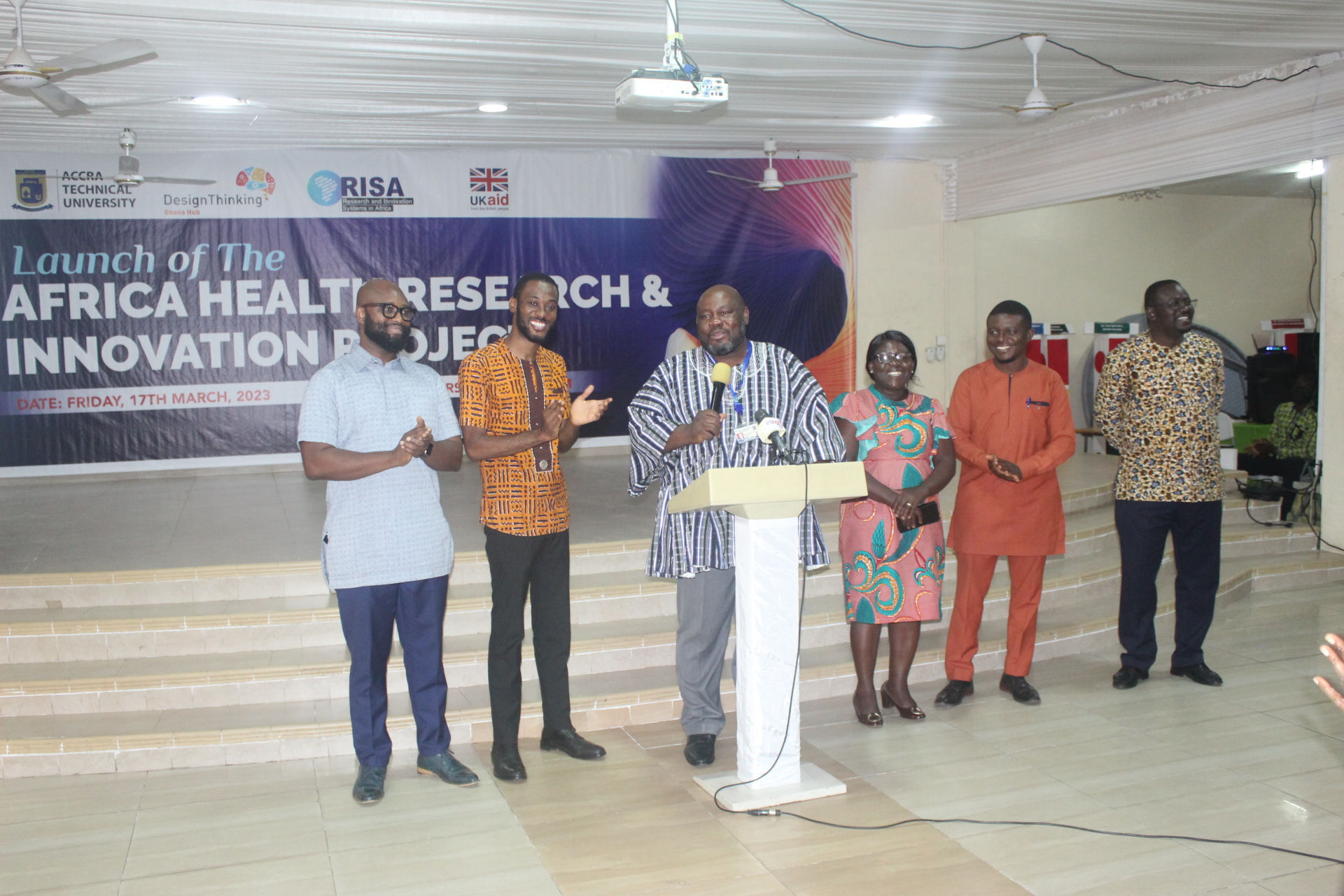Accra Technical University (ATU) has been awarded a grant of $152,869 to collaborate with the Design Thinking Ghana Hub on innovative research to address societal concerns in the health sector.
The funds will be used to carry out a multifaceted project at the university through the UKaid-funded Research and Innovation Systems for Africa (RISA) Fund.
A competitive call for applications resulted in the selection of 150 ATU students for the project, who were then trained to design any prototype medical device in the healthcare industry. Over the 10-week training, young, up-and-coming leaders’ expertise in designing health solutions tailored to local needs would be tapped.
Professor Samuel Nii Odai, Vice-Chancellor of ATU, stated at the initiative’s launch in Accra that the project would use a multi-layered strategy to prepare trainees to develop and implement healthcare solutions.
The Vice-Chancellor emphasised that the initiative, with the approval and support of many stakeholders, will convert current research into commercially viable healthcare technologies and solutions.
Read also: Stride ERP Researches AI to Improve Business Operations
According to Prof. Odai, the endeavour was spurred by the Technical Universities Act, 2016 (Act 922), which intends to “offer possibilities for technical and professional skill development, applied research, and publication.”
Furthermore, the Act requires the Technical University’s Governing Council to “encourage applied research, including the offering of technological advances and solutions to firms and businesses, as part of that Technical University’s research operations.”
Prof. Odai remarked that the University launched a 5-year strategic plan to carry out the Act in October (2021-2025).
This strategy was founded on eight solid pillars, the second of which was “Impact-Oriented Research.”
The professor committed to carrying out the project efficiently in order to maximise the benefits and enhance national prosperity.
He praised the project’s donor support and hoped to see more of it in the coming years for other innovative projects.
Mr Gameli Adzaho, the country technical lead for RISA, advised the trainees to take advantage of the opportunity to build innovative healthcare solutions in order to improve their employment prospects in both domestic and international markets.
Furthermore, Mr Adzaho stated that “we need to strengthen research to produce commercially viable solutions leveraging health sector breakthroughs.”
He advised the participants to practise the necessary skills throughout the programme.
He stated that health is one of the most important factors for long-term growth because the government invests in healthcare facilities to improve health services and outcomes.
Training Breakdown
The trainees would be split into three groups, according to Mr Gordon Adomdza, Director of the Design Thinking Ghana Hub, who also explained to them how design thinking modules might help them develop original solutions to societal challenges.
He explained that the trainees would be taught how to conduct ethnographic research by observing respondents’ actions in the field in order to gain practical experience creating and presenting solutions to the problems.
Five of the 526 organisations that sought funding, including two universities, ATU and the University of Ghana, were from Ghana.
About Accra Technical University
From its founding as a Technical Institute, Accra Technical University, Ghana’s top technical university, has offered education through competency-based training in a variety of engineering and industrial practice sectors. The University is blessed with talented professionals that can serve as lecturers and instructors and are qualified to teach pupils priceless lessons and information.
ATU is driven by the desire to produce better results and keep up with the pace of technological advancement on a global scale through creativity, in accordance with the mandate of the Technical University Act, 2016 (922). So, despite the ups and downs of academic trends, we have consistently maintained high standards of quality.
